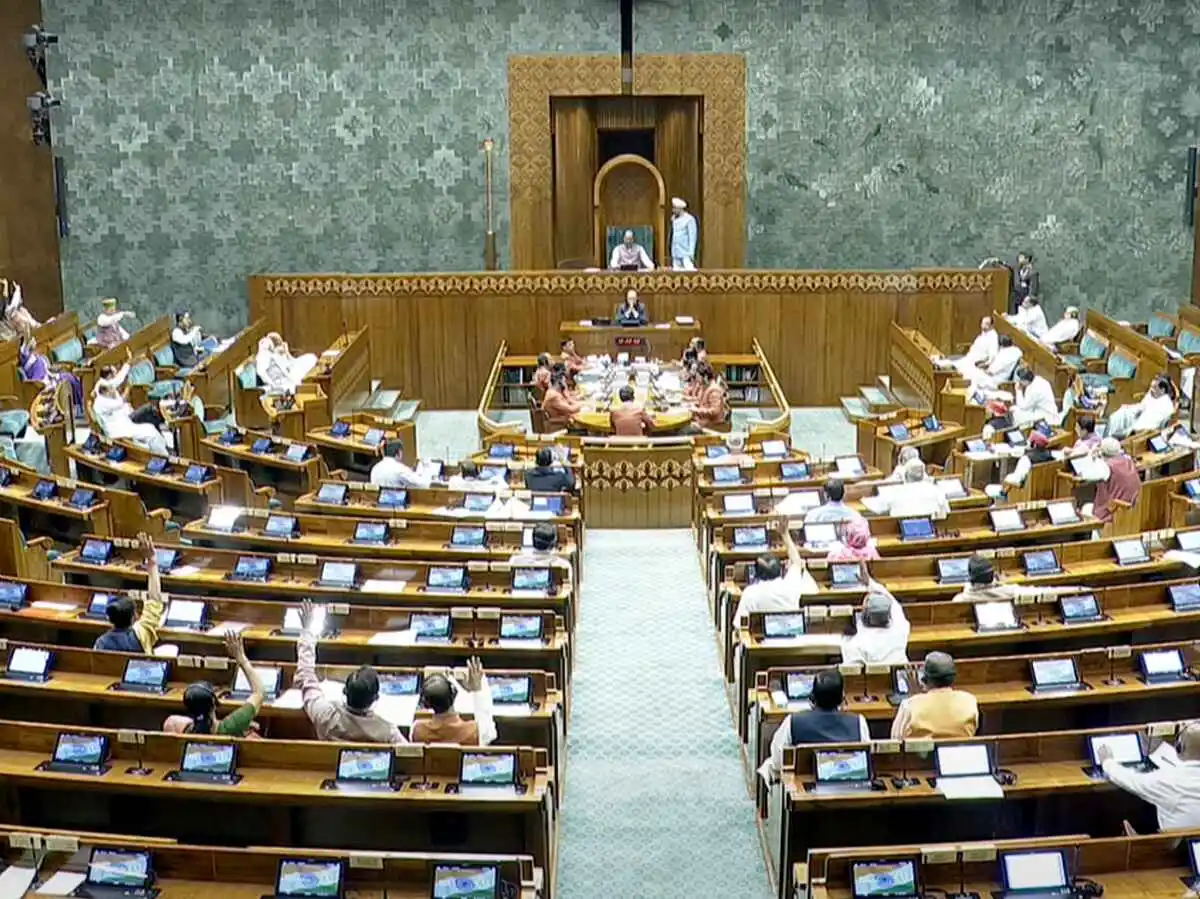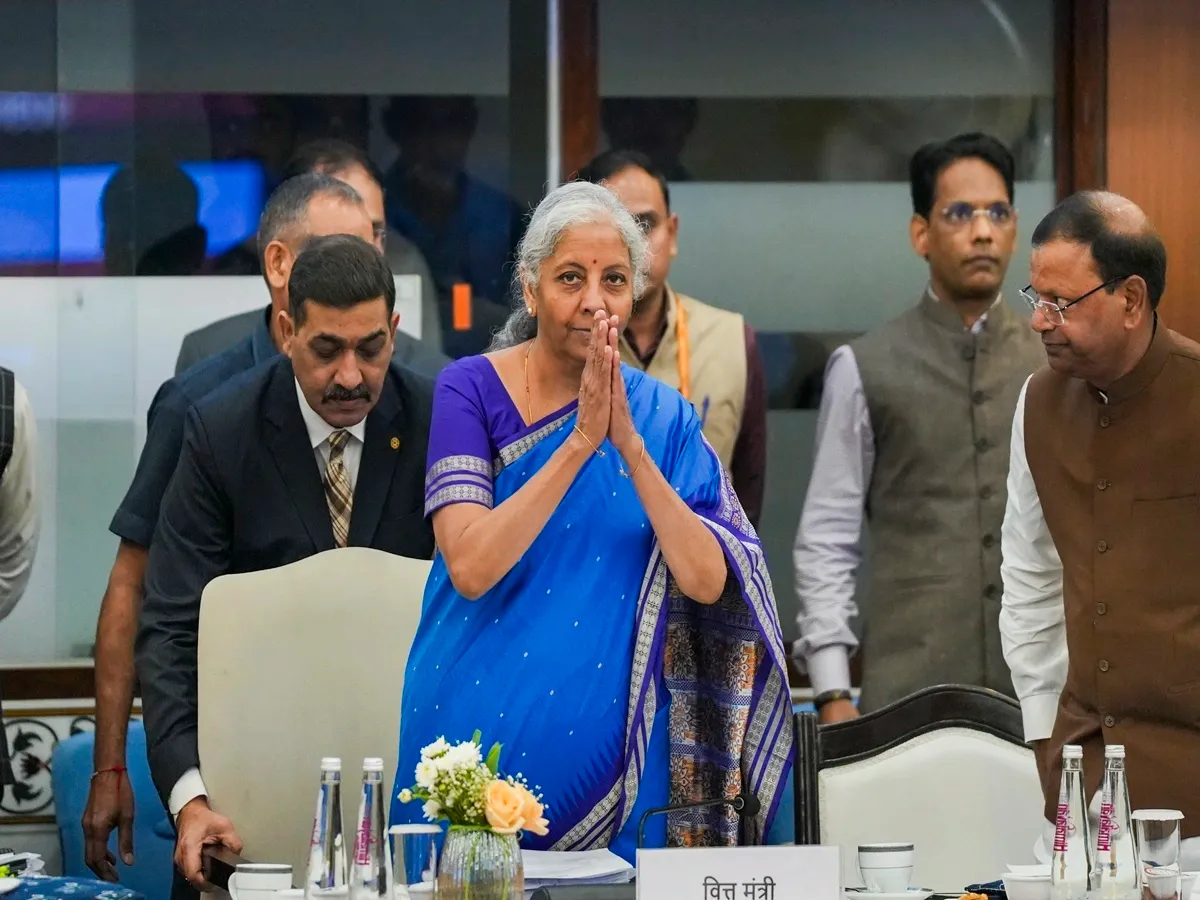Business News
What’s on Parliament’s table this Monsoon Session? 15 bills you should know about
.png)
5 min read | Updated on July 21, 2025, 11:32 IST
SUMMARY
The government has listed 15 bills for consideration, including major reforms like the new Income-tax Bill, Coastal Shipping Bill, Merchant Shipping Bill, and Mines and Minerals Amendment Bill.

Monsoon Session 2025: The session will have 21 sittings over 32 days, with discussion on Manipur's demands for grants and extension of President’s Rule also on the agenda.
The Monsoon Session of Parliament is set for a stormy start on Monday, July 21, as the Opposition has sought a discussion on the Pahalgam terror attack and Operation Sindoor.
Meanwhile, the government has lined up 17 items of legislative and other business for consideration during the 32-day session.
At an all-party meeting convened on Sunday, Union Health Minister Jagat Prakash Nadda made the introductory remarks before Parliamentary Affairs Minister Kiren Rijiju conducted the proceedings.
Rijiju informed leaders that the Monsoon Session would commence on Monday, July 21, and, subject to exigencies of government business, conclude on Thursday, August 21.
During this period, both Houses will be adjourned on Tuesday, August 12, and reassemble on Monday, August 18, to facilitate Independence Day celebrations. In all, there will be 21 sittings spread over 32 days.
The Parliamentary Affairs Minister said that tentatively, 17 legislative and other business items have been identified for consideration. Rijiju assured that the government is prepared to discuss any important issue as per the rules of both Houses.
While seven pending Bills have been listed for consideration and passing. eight Bills have been listed for introduction, consideration and passing.
- The Bills of Lading Bill, 2024
Introduced on August 9, 2024, in Lok Sabha, this bill seeks to replace the Indian Bills of Lading Act, 1856. A bill of lading is a document issued by a freight carrier to a shipper, containing details of goods carried. It serves as conclusive evidence of goods on board and grants rights of suit to the receiver or transferee. The bill retains the core provisions while updating the legal framework for issuance and transfer of bills of lading.
- The Carriage of Goods by Sea Bill, 2024
Passed by Lok Sabha and pending in Rajya Sabha, this bill will replace the Carriage of Goods by Sea Act, 1925. It governs transportation of goods by sea from Indian ports and is aligned with international shipping conventions to facilitate maritime trade and resolve legal ambiguities in shipping contracts.
- The Coastal Shipping Bill, 2024
Passed by the Lok Sabha on April 3 but pending in the Rajya Sabha, this bill seeks to regulate vessels engaged in trade within Indian coastal waters. It aims to create a comprehensive legal framework to promote coastal trade and enhance maritime sector efficiency.
- The Readjustment of Representation of Scheduled Tribes in Assembly Constituencies of Goa Bill, 2024
Introduced on August 5, 2024, this bill seeks to reserve seats for Scheduled Tribes in the Goa Legislative Assembly. It mandates the Census Commissioner to estimate the ST population based on the 2001 Census, enabling representation for recognised ST communities in the state assembly for the first time.
- The Merchant Shipping Bill, 2024
Introduced on December 10, 2024, this bill seeks to replace the Merchant Shipping Act, 1958. It covers ship registration, ownership, maritime training regulations, and seafarer welfare, aiming to modernise and streamline India’s shipping laws in line with international practices.
- The Indian Ports Bill, 2025
Introduced on March 28, this bill seeks to repeal the Indian Ports Act, 1908. It proposes an integrated approach to port development, creation of a Maritime State Development Council, and a simplified dispute resolution mechanism to accelerate port growth and efficiency.
- The Income-tax Bill, 2025
Introduced on February 13 and referred to a Select Committee, this bill will replace the Income Tax Act, 1961. It proposes simpler language, scrapping outdated provisions, reducing litigation, and introducing stricter anti-tax avoidance measures. The LS panel has proposed 285 changes, and the report will be tabled on Monday.
- The Manipur Goods and Services Tax (Amendment) Bill, 2025
This bill seeks to replace an Ordinance to amend GST provisions applicable in Manipur, ensuring compliance with national GST amendments and facilitating seamless tax administration.
- The Jan Vishwas (Amendment of Provisions) Bill, 2025
This bill seeks to decriminalise over 100 outdated provisions across various laws to ease business operations, reduce regulatory compliance burdens, and align India’s legal framework with global best business practices.
- The Indian Institutes of Management (Amendment) Bill, 2025
This bill seeks to add IIM Guwahati to the schedule of the Indian Institutes of Management Act, 2017, enabling it to grant degrees officially and align its governance with other IIMs under the central law.
- The Taxation Laws (Amendment) Bill, 2025
Aims to amend certain tax laws to align with changes proposed under the new Income-tax Bill and other direct tax reforms, ensuring smoother implementation of upcoming tax provisions.
- The Geoheritage Sites and Geo-relics (Preservation and Maintenance) Bill, 2025
Seeks to declare, preserve, and maintain geoheritage sites and geo-relics of national importance for research, education, tourism, and awareness generation, providing statutory protection to India’s geological heritage.
- The Mines and Minerals (Development and Regulation) Amendment Bill, 2025
This bill proposes easing lease processes, attracting private players, expediting exploration and mining of critical minerals, and expanding the scope of the National Mineral Exploration Trust to boost the mining sector.
- The National Sports Governance Bill, 2025
Seeks to promote sports and sportspersons’ welfare, establish ethical governance standards for sports federations, and create mechanisms for resolving sports grievances and disputes to strengthen India’s sports ecosystem.
- The National Anti-Doping Amendment Bill, 2025
Aims to align India’s anti-doping law with the World Anti-Doping Agency Code and international standards, ensuring the independence of the National Anti-Doping Appeal Panel and strengthening doping control in sports.
Financial Business
The session will also witness discussion and voting on Demands for Grants for Manipur for 2025-26 and passage of the related Appropriation Bill.
Other Business
A resolution seeking approval for the extension of President’s Rule in Manipur, imposed through a Proclamation issued on February 13, 2025, under Article 356(1), will also be moved during the session.
By signing up you agree to Upstox’s Terms & Conditions
About The Author


